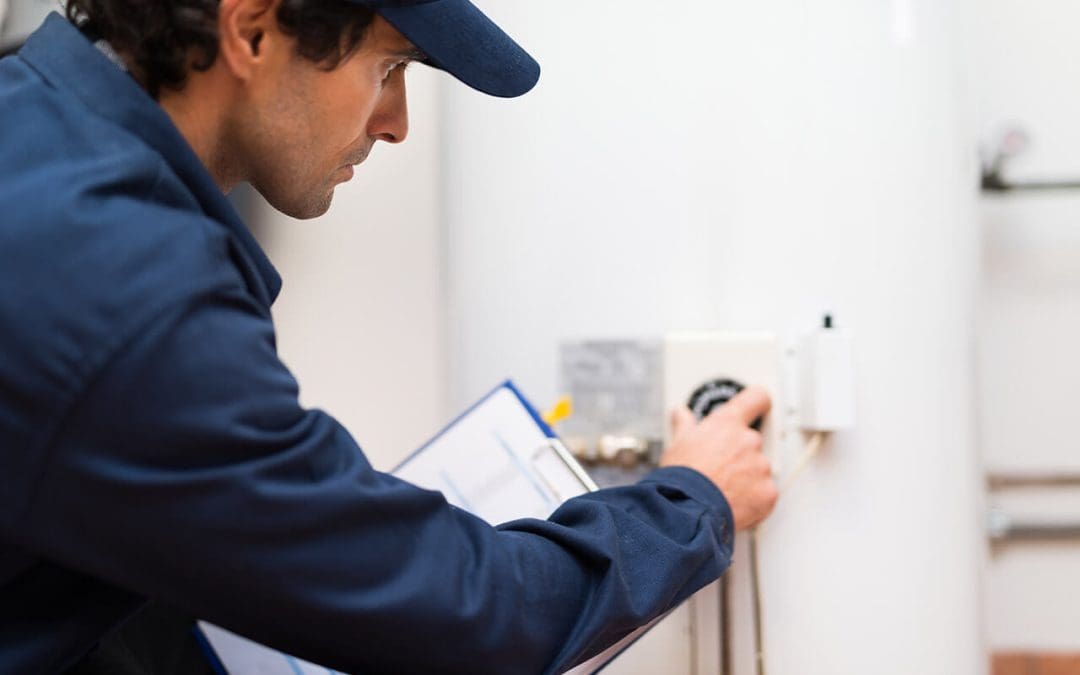A water heater rarely fails without warning. It usually gives you signs—some subtle, some hard to miss. But the biggest mistake homeowners make is assuming it just needs a repair, when in reality, it’s already past its prime. If your water heater is 10+ years old and starting to act up, it’s not just “wear and tear.” That’s a warning bell. Keep ignoring it, and you’re one cold shower away from a total failure—or worse, a leak that damages your home. Let’s break down the most common water heater problems that typically mean it’s time for a full replacement, not just a quick fix.
Common Water Heater Problems: Rusty or Discolored Water
If your hot water has a reddish or brownish tint, that’s a red flag. It often points to corrosion inside the tank. Sediment build-up can cause a bit of discoloration, but consistent rust in the water—especially from the hot tap only—is usually internal corrosion.
Once a tank starts rusting from the inside, there’s no reversing it. You might have a little time, but the tank will eventually weaken enough to leak. Replacing the unit before that happens is the smart move.
Water Around the Base of the Heater
Moisture or puddles forming near the bottom of your water heater typically mean the tank has cracked or started leaking. Small leaks often start slow and can be mistaken for condensation or plumbing drips. Once the tank is leaking, it can’t be sealed back up.
If the leak is coming directly from the tank—not a loose fitting or connection—the only solution is a full replacement. A leaking tank won’t last long, and the longer you wait, the more damage it can cause.
Loud Popping or Rumbling Noises
A water heater should run quietly. If yours starts making loud popping, banging, or rumbling sounds, that’s usually due to heavy sediment build-up at the bottom of the tank.
Sediment hardens over time, creating a thick layer that makes the burner work harder to heat the water. That reduces efficiency, damages the tank, and shortens its life.
Flushing the tank can help, but once the build-up is severe and the noises are consistent, it’s often too late for flushing to make a difference. At that point, replacement is the better option.
Inconsistent or Rapidly Cooling Water
If your hot water runs out faster than it used to—or if the temperature swings wildly during a shower—that’s a sign your water heater isn’t heating efficiently anymore.
Over time, elements wear down, and the tank’s ability to maintain heat declines. In electric models, heating elements can burn out. In gas units, the burner or thermostat may fail.
You can replace individual components, but if your system is already old, that’s just delaying the inevitable. A new unit will restore hot water reliability and will lower your energy bill.
Visible Signs of Water Heater Problems: Corrosion or Damage
If you see rust around the pressure relief valve, inlet/outlet pipes, or the tank’s base, take it seriously. That’s usually surface evidence of internal issues.
The same goes for dents or warping in the tank body. Structural damage, even minor, can compromise the integrity of the unit over time. Any of these signs is a clear indicator that the tank is nearing failure and should be replaced before it leaks or bursts.
Age of the Unit
Most standard tank water heaters last 8 to 12 years. If yours is creeping into that range and having issues, don’t gamble with it.
Even if you haven’t seen a major failure yet, it’s not worth waiting for one. Upgrading to a modern, more efficient unit now can save you the hassle of an emergency replacement and reduce utility costs long-term.
FAQs on Water Heater Problems
How do I know the age of my water heater?
Check the serial number on the manufacturer’s label. Most include the date code in the first few digits. If you’re unsure, a quick search of the brand’s serial number format can tell you exactly how old it is.
Is it cheaper to repair or replace a water heater?
It depends on the issue and the unit’s age. Minor fixes on a newer heater make sense. But for older units with recurring issues, replacement is usually more cost-effective in the long run.
What’s the average cost to replace a water heater?
Replacement typically ranges from $1,000 to $2,500, depending on tank size, type (gas or electric), and installation complexity. High-efficiency or tankless models will be on the higher end.
How long does it take to replace a water heater?
Most standard replacements take about 2 to 4 hours once the plumber arrives. If work needs to be done to bring things up to code, it might take a little longer.
Should I consider going tankless?
Tankless units offer endless hot water and higher efficiency, but come with a bigger upfront cost. They’re worth considering if your household uses a lot of hot water or if you’re upgrading from an older system.
Rhode Island Real Estate Inspection Services offers professional home inspections in Rhode Island. Contact us to request an appointment for our services.

